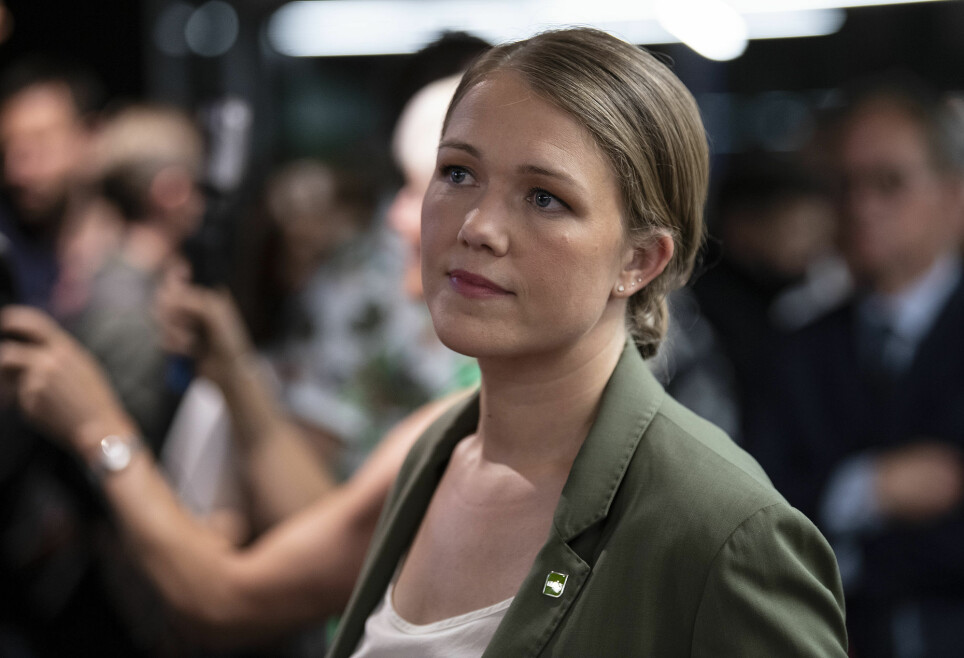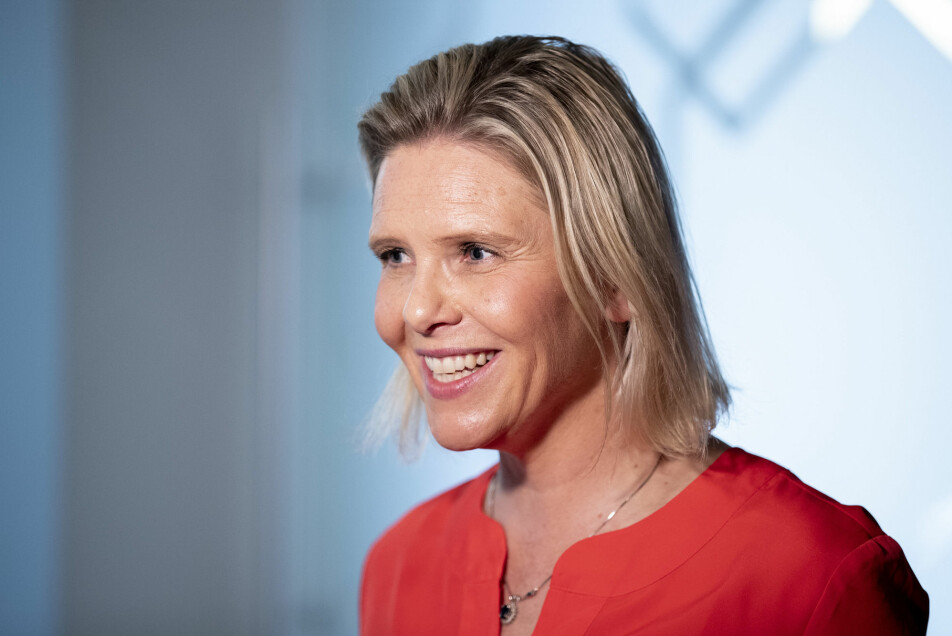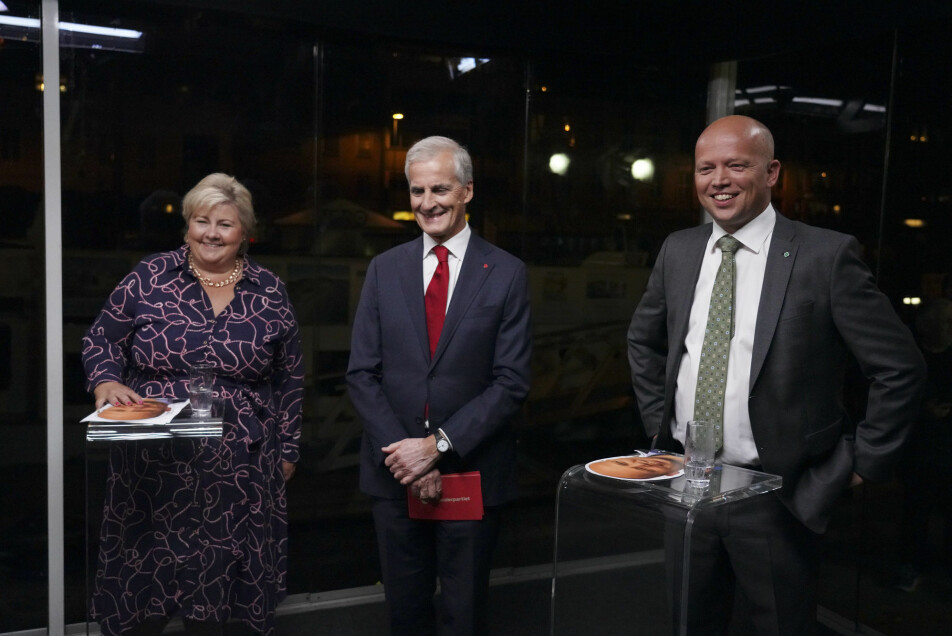
The party that wins this battle, wins the Norwegian national election
Norwegian politics has become a battle over ownership of different issues. This has made this year’s national election campaign a competition to place each party’s cause at the top of the political agenda.
Just over a week before the 2021 Norwegian Storting (Parliament) elections, the Green Party (MDG) sailed up in the polls. Climate and environment have ended up at the top of the political agenda. This is an issue MDG owns, and voters flocked to them.
The Liberal Party (V) and the Socialist Left Party (SV) also have a piece of climate and environmental issues, and could do well in the polls.
Earlier this year, it looked as if the Norwegian national election would be focused on district politics, and that the Centre Party (Sp) would be the real winner of the election.
“Issue ownership is something a Norwegian political party can maintain for many years,” said Johannes Bergh to sciencenorway.no. Bergh is research director at the Institute for Social Research in Oslo and focuses on politics, democracy, and civil society.
“With the political agenda of the day, it is completely different. Thing can change very quickly,” he said.

Where did housing policy go?
In the decades after World War II, housing policy was important to many voters. This led the different parties to fight to demonstrate they had the best housing policy.
Many saw the Norwegian Labour Party (Ap) as the strongest, because their policies caused more homes to be built. The party won election after election.
Later, during the Cold War, many people saw defence policy as being important. Here, a large number of voters believed that the Conservatives (H) were the party with the best policy.
In a new article in the Tidsskrift for samfunnsforskning (Journal of Social Research), election researcher Johannes Bergh and his colleagues Stine Hesstvedt and Rune Karlsen look back at the battle to control the political agenda during previous parliamentary elections.
The three social scientists clearly see that the party that managed to win ownership of an important issue — and thus in the eyes of many voters had the best policy —often won the election.
But that presupposed that the party also managed to bring the issue to the top of the political agenda during the election campaign.

Health, taxes and the elderly
Health, tax policy and elder care have been important issues in previous parliamentary elections.
Health: The Labour Party (Ap) and the Conservatives (H) have shared ownership of health policy issues for many years, the researchers say.
Taxes and fees: Here too, the Labour Party (Ap) and the Conservatives (H) have competed to own this issue over the last 20 years.
Elder care: The Labour Party (Ap) succeeded around the year 2000 in winning primary ownership of this important issue as well. But during the last ten years, the party’s ownership has weakened a bit again, the researchers said. Now there are more Norwegians who associate the Conservatives (H) with elder care.
The UN climate report changed everything
None of these issues are at the top of the agenda in the upcoming Storting elections.
For some time, district politics seemed to be the winner. Here, the Centre Party (Sp) definitely owns the issue.
But then the UN's latest climate report exploded into the public debate, and the election campaign was turned upside down.
“The fall of the Centre Party (Sp) is a very good example of how quickly things can turn around,” Bergh says.
“The same is true of how quickly the climate issue suddenly came back so strongly, after it was a bit in the shadows during the pandemic,” he said.

Issue ownership can last but the political agenda often changes
Bergh and his colleagues see that a party continues to own an issue for many years.
He says that the interplay between issue ownership and the political agenda is now characteristic of democracies in most countries with many political parties, as is the case in Norway.
But the election researcher doesn’t agree that setting the political agenda has become more important just recently.
“No, it’s been important for quite a few years already,” he said.
“If we look back as far as 40-50 years ago, individual issues may not have been so important in the election campaign. Then, loyalty to the parties was probably more important. If you were a worker, you voted for the Labour Party, perhaps without thinking so much about which issues the party fought for,” he said.
Health policy and elderly policy may return
Bergh says that issues such as health and elder care — typically issues where the Labour Party and the Conservatives have ownership — never completely disappear from the political agenda.
“These issues are constantly present in Norwegian politics. So it’s no coincidence that the country’s two largest parties have ownership here,” Bergh said.
“In this election, the climate and environment have pushed these issues a little more out of the voters' consciousness. But they can come back,” he said.
Translated by Nancy Bazilchuk.
Read the Norwegian version of this article on forskning.no
Source
Stine Hesstvedt, Johannes Bergh and Rune Karlsen: “Kampen om dagsorden: et historisk tilbakeblikk på stortingsvalgene 1957–2017,” (The struggle for the political agenda: a historical look back at the parliamentary elections 1957–2017), Tidsskrift for samfunnsforskning, 3/2021.































